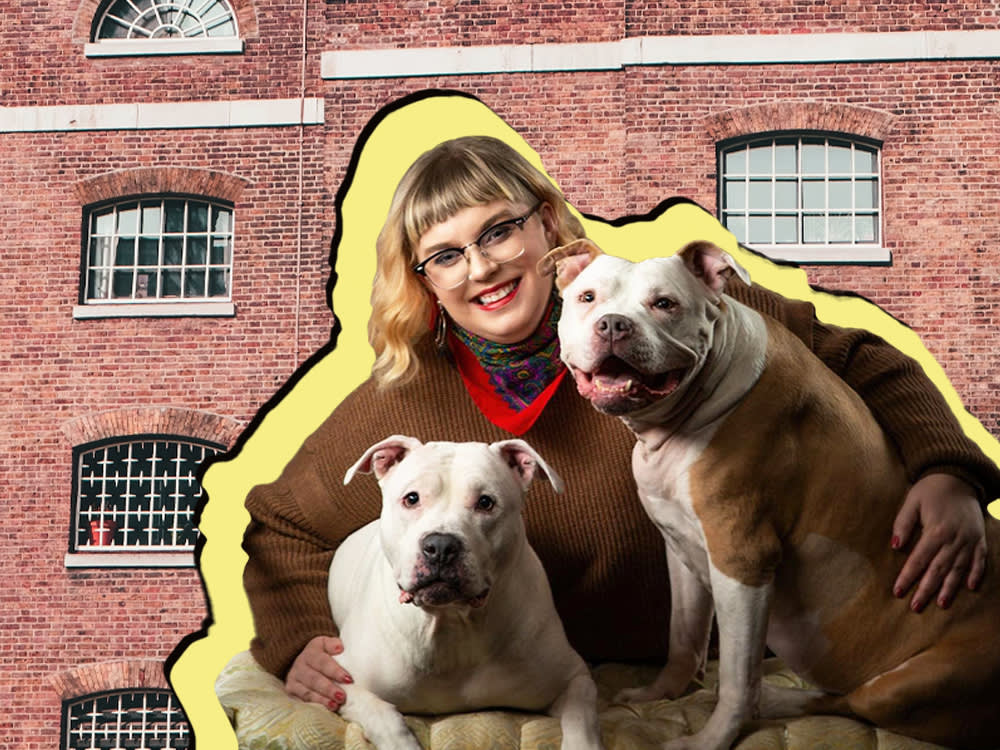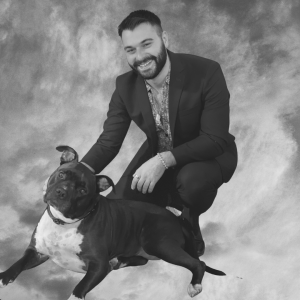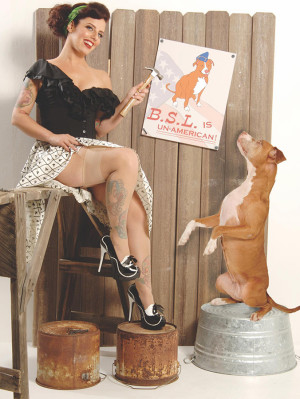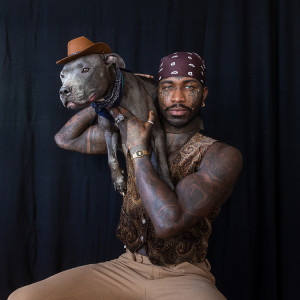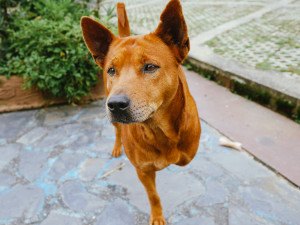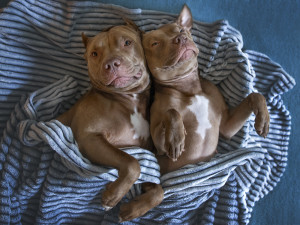“My Pit Bull is Family” Fights For the Big Little Guys
The fair-housing org’s journey from bumper stickers to databases.
The origins of My Pit Bull is Familyopens in new tab are likely familiar to anyone who has endured the grueling process that is apartment hunting as a pet parent, especially for those with large dogs. In 2011, one Minneapolis landlord realized her properties were some of the only few in the city that allowed Pit Bull-type dogs. Realizing the inequity of this all-too-common occurrence, she began creating bumper stickers that read, “My Pit Bull is Family,” hoping to raise awareness and break stereotypes about the dogs and their parents.
In doing so, she accomplished two massive feats: First, she proved that not all landlords are greedy barbarians who lack any form of compassion. But more importantly, she started a movement.
The stickers quickly caught on and could be found on cars across the country for years after. Then, in 2014, Shannon Glenn joined the campaign and transformed My Pit Bull is Family into a full-scale nonprofit that battles housing discrimination for all dogs regardless of breed or size. It’s a problem that even animal advocates had historically ignored, per Glenn, who now serves as the group’s executive director.
“When we started, we were one of the only organizations that was like, ‘Hey, housing is an issue!’” Glenn says. “I remember going to my first animal welfare conference, and they were talking about why large breed dogs were being surrendered or why they were being euthanized. I stood up and said, ‘It’s because of housing!’ and the looks that I got said, ‘No, housing is not the reason.’ Fast forward six years later and housing is one of the top topics in animal welfare.”
How much do you spend on your pet per year?
She explains that this form of discrimination can be attributed to a familiar foe — insurance companies. At this point, insurance providers are like Palpatine in Star Wars — even if it’s predictable, they always end up being the villain. And similar to the redundant Sith lord himself, this problem first showed up in the ‘80s.
“There was a list created by insurance companies in the 1980s of dogs that were, quote-unquote, the most aggressive or that would cause the most damage and Pit Bull-type dogs were top of the list,” Glenn notes. Generally focused on larger dogs, many identified as having blocky heads and wide bodies — characteristics often used to describe Pitties — the list included about 25 breed types and is still used today to help landlords and insurers discriminate against allowing pups in their buildings.
As Glenn puts it, “The number-one reason why dogs are surrendered is lack of housing that will accept them. And so, dogs and also their families are facing discrimination when they’re unable to find a place to call home.”
To combat this ongoing battle, My Pit Bull is Family turned to the same resource every modern NBA general manager uses to fill out its roster — analytics. In 2019, Glenn and her team of volunteers developed the National Rental Research Dashboardopens in new tab, a country-wide database of properties categorized by their inclusive policies (or lack thereof). State by state, the dashboard features a series of blue and red dots; the blue dots represented available homes open to all breeds and the red dots flagged renters to ones with pet restrictions.
The process behind compiling the data is truly a (manual) labor of love. My Pit Bull is Family’s team of volunteers scour listing sites, such as Rent.com, to investigate and assemble thousands of properties’ pet policies. They’ll also contact landlords or rental groups to confirm information and research the best options. Then they add it all to the dashboard.
Glenn says that she’s noticed an uptick in pet-friendly listings over the past couple of years following the murder of George Floyd — and other similar tragedies that have raised awareness for equity and inclusion in all forms — in the nonprofit’s home city of Minneapolis. “The conversation around race and breed discrimination and how it’s really impacting low-income communities and families of color at a higher rate has really been fascinating for me, and I am absolutely honored that we get to talk about those connections every single day,” she adds.
Minneapolis itself has an ugly history with Pitties. In fact, prior to 2015, Pit Bulls were not allowed to be adopted by the general public in the city. This lingering treatment and bias is one of the reasons My Pit Bull is Family created the North Minneapolis Pet Resource Centeropens in new tab. The group offers access to pet food and supplies for community members in need, cementing the belief that income or residency requirements shouldn’t limit dog companionship. “Every day we’re able to directly support pet owners in making ends meet. Through this program, we’re truly able to keep people and their pets together, even during a time of financial instability,” Glenn says.
She notes that her ultimate goal for the organization is to no longer be needed. But until then, the group plans to continue fighting for breed equality by offering guidance and data to anyone who wants it — and supplies and resources to all who need it. Above all, Glenn wants people to understand that every dog is as unique and deserving of love as any person. Not to mention, most are just as gassy.
“Every dog, regardless of their perceived breed, is going to have their own personality. The majority of Pit Bull-type dogs that I have met are goofy, they fart a lot, and they’re just so hilarious. More than anything, they’re loyal and they just want to snuggle,” she says.
